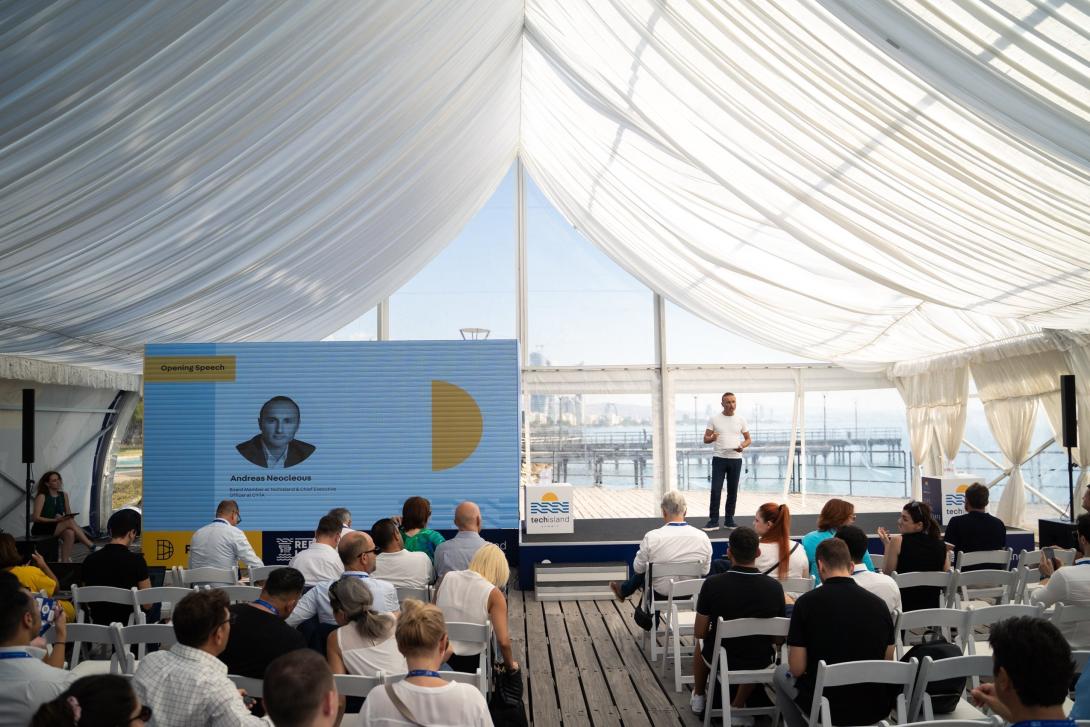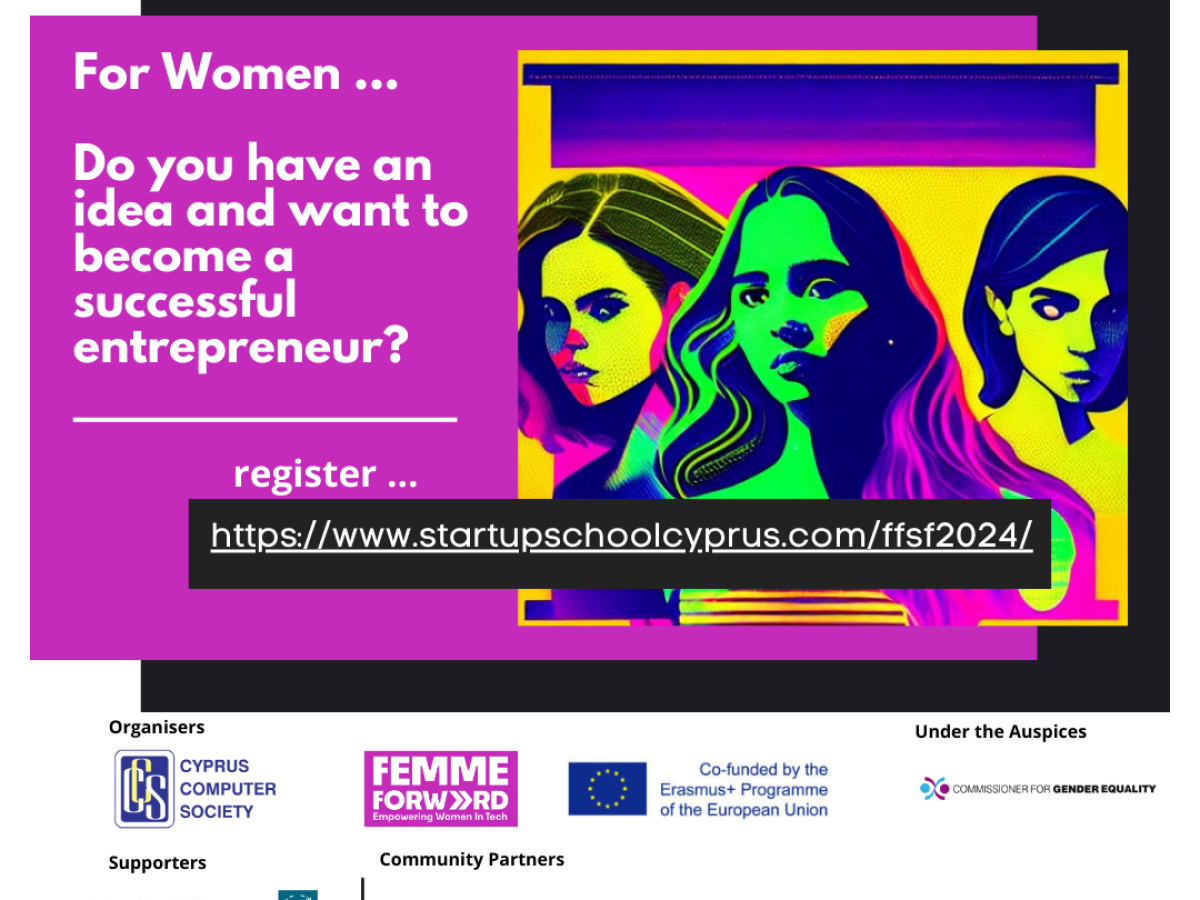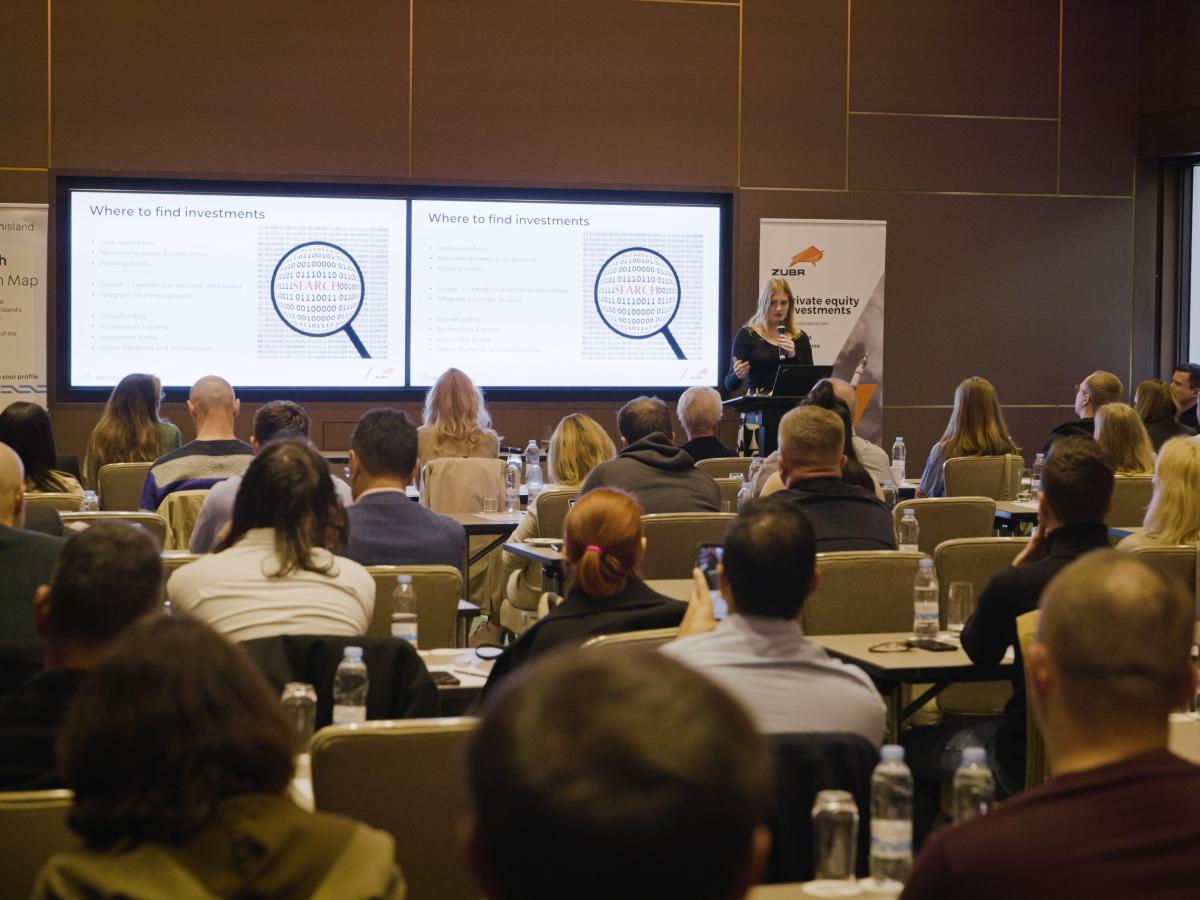
The TechIsland Summit, a melting pot of ideas and innovations, was held in Limassol on September 20th, 2023. It brought together multiple leaders and influencers from government, technology, business, and academia to discuss the island's journey towards becoming a prominent tech hub. Andreas Neocleous, the CEO of Cyta and a key Board Member of TechIsland, delivered an insightful keynote speech amidst the vibrant discussions and panels. With a storied career that includes leadership roles at Cyta and previous engagements at MTN Cyprus, Ericsson, and Goldman Sachs, Andreas is a veteran in driving technological and organizational transformations; And as a board member of TechIsland, he aims to advance the conversation about what it will take for Cyprus to elevate its position as a leading tech destination.
In a roundup following the Summit, Neocleous spoke to FastForward about the future of Cyprus as a burgeoning tech island, reflecting on the summit's key takeaways and TechIsland's strategic vision. He emphasized the importance of a holistic approach involving all stakeholders to foster an environment conducive to retaining international talent and nurturing local expertise. Particularly striking was his perspective on transitioning from traditional employment mindsets to roles that resonate with a tech-driven future. Additionally, Andreas shed light on the synergy between the financial and tech sectors, underscoring the potential for fintechs and traditional banks to collaborate and drive innovation. Concluding with a commitment, he reaffirmed TechIsland's dedication to establishing Cyprus as a premier tech destination, emphasizing the need for continuous dialogue and collaboration among industry players to realize this vision.
Mr. Neocleous, the recent TechIsland Summit covered a myriad of themes and discussions. What would you say were the three standout topics or revelations from this year's event?
First, let me give you a little bit of background. In 2022, the local ICT sector contributed 13% to Cyprus' GDP. In that year, the Business Facilitation Unit registered more than 1,000 new IT companies, and we had an influx of more than 18,000 IT specialists with their families. In absolute numbers, 13% translates to 3 billion euro in contribution to the economy, without taking into account the spillover effect contribution to professional services, real estate, tourism, automotive etc. All these numbers are a testament to the industry’s growth and potential.
It is important to have all stakeholders involved, maintaining an open dialogue, identifying challenges and together coming up with solutions
TechIsland was established in 2021 to support the vision to transform Cyprus into a tech hub. For this to happen it is important to have all stakeholders involved, maintaining an open dialogue, identifying challenges and together coming up with solutions. The TechIsland Summit offers a platform for discussion. Every year, we bring together experts from Cyprus and abroad, as well as representatives from both the private and public sectors, to share ideas and engage in constructive discussions.
This year, the Summit focused on the resilience and sustainable growth of the tech sector, drawing insights from international strategies for talent retention. We addressed significant questions about the next steps in the sense that we attracted all these companies and all these professionals, how do we keep them here? What are the challenges that stand in the way of this retention?
The two panel discussions about education shed light on different aspects and challenges, pointing out the tech industry’s commitment to support the sector in different ways. The second panel which delved into housing gave us more context on why Cyprus is lacking affordable housing options and what can be done to meet the growing demand. Also, it was great to see how both traditional banking institutions and fintechs have the eagerness to collaborate to upgrade and improve banking in Cyprus.
Finally, it was great to hear from speakers like Mary Harney, former Deputy Prime Minister of Ireland, and Clive Ryan, former Regional Director - EMEA - Risk Management and Intelligence, Global Risk Operations at META, offering practical advice based on Ireland’s successful journey to become an international technology hub.
The education sector was touched upon from various aspects. How does it specifically impact Cyprus' journey to becoming a tech island?
The education sector is crucial in Cyprus’ transformation into a tech hub. During the Summit, we approached education from two separate angles to explore two different issues, but both under the same end goal: creating favorable conditions to attract and retain top tier IT professionals from abroad, and leverage their presence to further grow the industry, create a local pool of talent and open more job opportunities.
First, secondary private schools offering international education are struggling to accommodate the increasing number of students from internationally relocated families. There is an immediate need to expand the private education sector, as not finding a spot in schools for their children is a deterring factor for professionals to relocate to another country. Tech companies are stepping up, investing in existing schools and even starting new ones. But we also need quicker licensing and permits for new schools or expansion plans of existing ones. We should consider allowing distance learning for students who move here in the middle of the school year, to enable them to smoothly transition and adapt to their new school environment.
We need to move away from traditional employment mindsets towards roles and focus on those that resonate with the tech-driven future ahead
Second, we need to build up our local tech workforce. Cyprus is a top country in tertiary education graduates, but not enough in tech fields. We’re also competing with other EU countries that are already strong in this sector and offering better incentives for international talent. To attract and keep talent here, we need a better all-around strategy, aimed at creating an appealing, supportive environment that is essential for foreign professionals to consider long-term stays, thereby helping to create the local talent pool and fostering job creation.
I must point out that we need to move away from traditional employment mindsets towards roles, such as banker or civil servant and focus on those that resonate with the tech-driven future ahead. The work environment is changing and companies cannot find a tech-ready workforce. Tech-driven education is key. We need to equip young people with the skills for the tech future, like project management, design thinking and new product development. Tech companies are here and they are interested to work with Academia and public authorities and offer their knowledge and expertise in the field to support initiatives for skilling, upskilling and reskilling.
What about affordable housing? How does this fit into the broader vision for Cyprus' tech future?
The availability of affordable housing is a key issue, not just for Cyprus’s vision of becoming a tech island, but for the general population as well. This was a very interesting panel discussion during the Summit, which shed some light on how we reached the situation we are in today. Essentially, since the 2013 crisis, the focus in real estate has been on offering luxury properties. Later, due to global impacts such as COVID-19 and the geopolitical crisis, construction slowed down, while the demand for reasonably priced housing increased, creating an imbalance in supply and demand. Furthermore, the traditional policies favoring buying over renting, and a focus on social rather than affordable housing, have become less relevant with current market needs. Recently, the government announced a plan to boost supply which is a great start to better align with the evolving housing demands. As clearly mentioned during this panel, many tech companies are investing or are considering investing in real estate. What they need now are quality projects from developers and for the government to introduce appropriate incentives to make these projects attractive as investments.
Given the emphasis on aligning tech with financial sectors, what synergies do you foresee between these two vital industries for Cyprus?
Cyprus has been acknowledged for its significant growth in the tech sector. However, there is an emphasis on the need for the banking sector to evolve in alignment with tech advancements to foster a supportive environment for continued growth and innovation. Fintechs have a better understanding of tech clients and are agile enough to respond to their ongoing requirements. As mentioned during the Summit, both traditional banks and fintechs have unique roles within the financial ecosystem and collaborations of different forms between the two will be mutually beneficial.
With the advent of technologies like AI, blockchain, and 5G, how is Cyprus positioning itself to embrace these advancements? What would be the top priorities in this endeavor?
In order to take advantage of any new technology, I believe 3 key ingredients need to be present: Infrastructure to accommodate it, skilled people to develop/adapt it, and educated people to use it.
Peoples’ eyes need to be opened in terms of what the technologies can do for them
Regarding the infrastructure, a lot of investment has been made in creating a truly connected island allowing people and businesses fast and reliable connectivity through fiber and 5G. Significant investment is still needed in datacenters and renewable energy. With respect to skilled people, I think in the last 5 years we have managed to create a lot of talent locally, while attracting a lot of talent from abroad. The most important area to focus needs to be the people and business that will become the users of the new technologies. The demand is simply not there yet, and in order to create it, peoples’ eyes need to be opened in terms of what the technologies can do for them. This needs a lot of marketing and communication funds and definitely will require government and EU funds, but it’s absolutely necessary if we want to “create” the customers who will believe and very likely pay to use the new technology.
Reflecting on the energy and insights from the TechIsland Summit, what are the anticipated next steps for the Association?
As TechIsland we will continue our work to achieve our specific mission: put Cyprus on the international map as a tech island. We act as the voice of our industry, advocating reform and policy making, collaborating with all stakeholders to identify solutions as well as providing suggestions to ensure that the right infrastructure is in place for tech to have sustainable growth.
All the topics discussed are high on our agenda. We have formed dedicated Working Groups, including in the education and PropTech sectors, to facilitate discussion and collaboration among all relevant stakeholders, identify key issues and provide practical and sustainable solutions.
I can’t stress enough the importance of maintaining an open dialogue between the public and the private sector and any relevant stakeholders. Our members are very active and they take their role on the island very seriously. As mentioned earlier, we have tech companies who are building schools, others who are collaborating with Universities to offer first hand experience to IT students, and others who are investing in affordable real estate projects.
At TechIsland we believe that our collective efforts can bring positive change. We have a great vision, and together we can elevate not just the tech industry but Cyprus as a whole.
Link to published interview in FastForward: https://ffwd.com.cy/people/what-it-will-take-cyprus-elevate-its-position-leading-tech-destination


